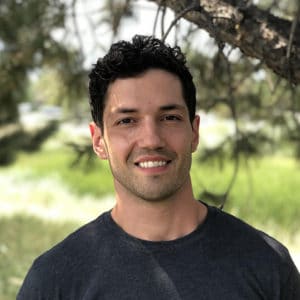Presented on October 13, 2021 by Dr. Zane Jaafar, Senior Scientist at Watchmaker Genomics
Clinically relevant applications, such as somatic variant detection, continue to push the bounds of existing next generation sequencing (NGS) technologies, requiring highly scalable solutions that are compatible with a broad range of DNA inputs and deliver increasingly high sensitivity and specificity. A persistent bottleneck in these workflows is genomic DNA fragmentation. Sonication is currently the gold standard for unbiased DNA fragmentation, but it requires an upfront equipment investment, is not easily automated or scaled, and is difficult to apply to low input samples due to inherent sample loss. Current enzymatic DNA fragmentation products alleviate many of these issues; however, they present data quality challenges due to the prevalence of sequence artifacts formed during the fragmentation process which can convolute variant calling and decrease accuracy.
Through sophisticated enzyme engineering and a multidimensional Design of Experiments approach to system optimization, Watchmaker Genomics has developed Watchmaker DNA Library Prep with Fragmentation. The workflow harnesses the process benefits of enzymatic fragmentation, while mitigating the formation of associated artifacts, including chimeric reads and false SNVs centered on partial palindromes at the ends of fragments. Further, inclusion of the Equinox polymerase delivers ultra-high fidelity, low-bias library amplification. Results highlight robust and tunable fragmentation performance, even with sub-nanogram input amounts and formalin-fixed paraffin-embedded (FFPE) samples, along with high library conversion efficiency. Watchmaker’s library prep solution enables clinical and translational applications to access meaningful insights from a broad range of biological sample types with an unparalleled combination of accuracy and scalability.
Learning Objectives
- Identify sequencing artifacts, such as interchromosomal mate pairs and hairpin artifacts, that can be introduced during library construction and how they can negatively impact assay sensitivity in clinically relevant applications, such as germline and somatic mutation calling.
- Illustrate the utility of combining a novel enzyme engineering platform and a multidimensional Design of Experiments (DOE) optimization approach to developing workflows that mitigate sequence artifacts.
- Demonstrate the value of a streamlined, scalable, and highly accurate library preparation workflow for high-stringency applications and challenging samples types, such as ultra-low and degraded inputs.
Zane Jaafar is a Senior Scientist in the Watchmaker Genomics Research and Development group. He earned his doctorate studying molecular biology and nucleotide biochemistry with an emphasis on mechanisms governing translation regulation in the lab of Dr. Jeffrey S. Kieft at the University of Colorado School of Medicine. During his post-doctoral work in Dr. Onn Brandman’s lab at Stanford University, he investigated the biophysical and biochemical consequences of chemotherapies on macromolecules in nucleoli. As a member of Watchmaker Genomics R&D, Zane led the team responsible for development of the Watchmaker DNA Library Prep Kit with Fragmentation.
